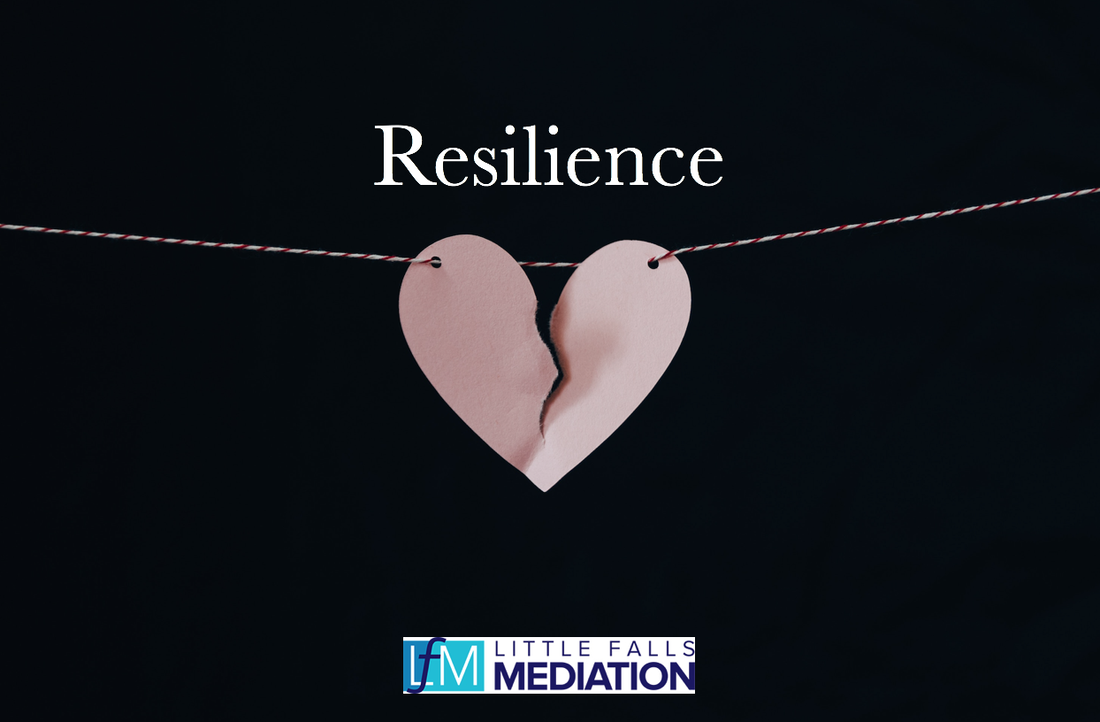|
“Note to self: every time you were convinced you couldn’t go on, you did.” -- Unknown
Death, divorce, illness, and unemployment are four big sources of stress in our lives. When I first meet my clients, they don't have to tell me they are going through a really tough time in their lives. I see grief and loss written all over their faces. I often think of Sheryl Sandberg, whose husband Dave died while they were both on vacation in Mexico celebrating a friend's 50th birthday. Sheryl took a nap and Dave went to the hotel gym where he died suddenly after falling off of a treadmill and suffered head trauma and blood loss. An autopsy revealed that he had suffered from coronary artery disease. Sheryl wrote and spoke openly about being "swallowed up in the deep fog of grief". Many, if not all of my clients, are openly grieving as well. I watched Sheryl's commencement speech at University of California, Berkeley a year after her husband's death -- or as she says, one year and thirteen days after she lost her husband. She said that for many months afterward there was a void and described "an emptiness that fills your heart, your lungs, constricts your ability to think or even to breathe." Sheryl talks about how she hit the books to try to understand and process grief and resilience. She looked at the data and quotes psychologist Martin Seligman in saying that there are three Ps -- personalization, pervasiveness, and permanence -- that are common emotional reactions to so many things that happen to us and are critical regarding how we all recover from hardship. • Personalization is the belief that we are at fault. Sheryl says that not taking failures personally allows us to recover — and even to thrive. • Pervasiveness is the belief that an event will affect all areas of your life. Sheryl says that she realized that other things in her life were not awful. After all, she and her children were healthy and had loving friends and family. • Permanence is the belief that the sorrow will last forever. Sheryl says that we often project our feelings out indefinitely. Instead, we should accept our feelings and recognize that they will not last forever. How do we define resilience? Harvard Business Review says that resilience is the ability to recover from setbacks, adapt well to change, and keep going in the face of adversity. (Harvard Business Review, January 5, 2015) Organizational psychologist Adam Grant says that terrible things will happen and that resilience is crucial; the key is how you recover. “I think about resilience as the speed and strength of your response to adversity. So when you encounter a difficulty, a hardship, a challenge, how quickly and how effectively are you able to marshal strength and either overcome that challenge or persevere in the face of it?” (CNBC, June 7, 2017) Sheryl said in May of 2017 at a commencement speech at Virginia Tech that we are not born with a certain amount of resilience. Sheryl says that resilience is a muscle, and that means we can build it. "We build resilience into ourselves. We build resilience into the people we love. And we build it together, as a community... It is in our relationships with each other that we find our will to live, our capacity to love, and our ability to bring change into this world." Sheryl talks about building resilience through shared experiences and narratives, relying on others, acknowledging our friends' challenges, being present for those in need, growing and nurturing hope, lifting each other up, celebrating joy, and cultivating gratitude and appreciation. "Counting your blessings increases them. People who take the time to focus on the things they are grateful for are happier and healthier." So write down three things that went well today -- instead of three things you did wrong. Call a friend whose mother just died instead of avoiding him because you don't want to bother him. Think about what you appreciate in your life instead of all of the things that are not going well. And reach out to your friends and family to help summon strength instead of isolating yourself. "If your heart is broken, make art with the pieces." -- Shane Koyczan
0 Comments
Leave a Reply. |
AuthorEllice Halpern, J.D., is a Virginia Supreme Court certified general and family mediator. Archives
June 2024
Categories |
Copyright © 2015 www.littlefallsmediation.com


 RSS Feed
RSS Feed